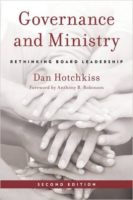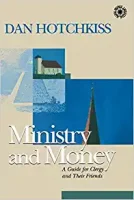It is a truth all but universally acknowledged—especially in small congregations—that whoever does the work should call the shots. Musicians are responsible for music, educators manage children’s programs, activists organize for social change. In the chancel, everyone defers to the altar guild. The underlying principle is clear: “Those with know-how should decide-how!”
But sometimes we go even further and let people who know how also decide what the congregation should be trying to accomplish. I want to propose an improved rule: “Those with know-how should decide-how, but everyone should have a voice when we decide-what.”
The first part of the rule is just common sense. If your heating system needs repair, you should select a contractor you trust and let them do the job. You’ll check in now and then, but unless you see a problem, the expert is the best one to decide how to do the work. Those with the know-how should decide-how.
The same reasoning applies to any tasks requiring special skills: bookkeeping, preaching, choir directing, laying out a web page. Even simple jobs like greeting people at the door require skills not everybody has. Those who have the know-how should have wide “decide-how” latitude.
Too Much of a Good Idea
But many congregations take this principle too far. People who become established as the “owner” of part of the congregation’s work get to decide not only how to do the work, but also what work should be done. The logic of “Those with know-how should decide-how” becomes “Those with know-how should also decide-what.”
The result is that musicians get to decide not only how to perform music but what type of music will best serve the congregation’s mission. Educators make lesson plans—and decide the congregation’s goals for ministry with children with little input or participation from non-experts. Decorators decide how rooms ought to look—and who can use them for what purposes. Money experts end up choosing ministry priorities because their expertise in finance and bookkeeping gives them practical control of money.
When it’s time to “decide-what” the congregation will be trying to accomplish, expertise alone is not enough. Here’s why:
The person generally regarded as an expert—let’s be frank—may not actually be one. Especially in small congregations, authority stems from longevity and trust more than from expertise. Even in larger congregations, as Susan Beaumont recently observed, people often stay in staff positions despite poor performance.
The logic of “let the expert do the job” applies only to real experts. And not every worker is, or becomes, an expert. Ten years’ experience can be ten years of learning and improving—or it can be one year of experience repeated ten times. And no matter how expert we become, we all return to beginner status every time the needs change, the software updates, or a new set of people steps up to coordinate with us.
Not even experts should be given an exclusive franchise to “decide-what.”
For one thing, “rule by worker-bees” tends to create a bias against change. Lyle Schaller observed long ago that one way to kill a change proposal is to put it onto the agenda of a standing committee. Standing committees exist to continue doing what they did before. Most of the time, this is a good thing! Consistently providing worship, education, social services, and pastoral care calls for faithful plodding more than creative thinking. Much good is done by plodding!
A Changing World
But faithful plodding is not all congregations need. Our ministry environment is changing rapidly and requires a planning process that looks past the tasks we currently are doing and asks, “What are we called to do and be in the next era?”
If the most faithful current workers have a privileged role in setting goals for what to do in future years, they’re likely to propose, at best, a mild update to the status quo. Others, who could offer truly fresh perspectives (and yes, expertise) are cut out of the decision-making process. Preoccupied with deadlines and next steps, workers are impatient to get back to work. This is not necessarily a fixed personality trait. The same people, in a different setting, may be quite creative—especially about other people’s work!
Rev. Dan the Tech Guy
I speak from experience. For more than twenty years, I have been helping congregations with strategic planning. But at home, like many people who belong to small congregations, I wear several hats. Pre-pandemic, I used to teach adult courses and occasionally pinch-hit in the pulpit. When Covid came, the minister’s husband recruited me to help put us online. As husband of the music director, I was his natural partner. For a time, the four of us made worship happen with no one else in the room.
That minister retired last summer, leaving me to manage a small Stream Team that sends our video to YouTube every Sunday. I also volunteered to be the website manager. Now I am the tech guy—ask anyone—happily ruling my little fiefdom in the back of the sanctuary. I love the work we do and think we do it in the best of all possible ways. If you suggest even a minor variation to me, I’ll say no!
All of which is more than a little bit ironic. In my work life I encourage boards and clergy to engage everyone in thinking about what the congregation’s mission calls it to accomplish, and then to authorize the staff to organize to achieve agreed-on goals. My “map” for thinking about how to organize a congregation has two structures side by side: one for governance, which is about deciding what do, and one for ministry, which about doing it—and deciding how to do it. Professionally speaking, innovation is what I’m all about!
But as an amateur, in my post-Covid role at church, I often wish the board and minister would give me more direction, I sometimes think they are bewildered that I’m asking for direction about something I know more about than they do. But I want the tech work to align with the rest of what church is up to. It’s not enough for me to solve practical problems. To keep my spirits up, I need to feel connected to a larger purpose. I think I’m not the first or only worker-bee to feel this way!
Everyone Should Have a Voice When We “Decide-What”
Nobody said church work would be easy. Healthy congregations walk a balance beam—honoring the work of workers when work needs to be done and opening the circle periodically to include non-experts and non-workers in “decide-what” conversations.
Do worker-bees, fiefholders, and other faithful servants sometimes resist bringing others into planning conversations? Yes, they do.
Is that a reason to let them decide alone what difference the congregation means to make in people’s lives? Certainly not.
It’s fine to entrust how-to decisions to the experts. But one of the most important gifts we give our members is the opportunity to help discern together what the congregation should become and do. In that conversation, experts and non-experts both have something to contribute. We’ll make wiser choices in the long run if we join know-how with diverse perspectives when it is time to “decide-what” we’ll accomplish next.
Dan Hotchkiss has consulted with a wide spectrum of churches, synagogues, and other organizations spanning 33 denominational families. Through his coaching, teaching, and writing, Dan has touched the lives of an even wider range of leaders. His focus is to help organizations engage their constituents in discerning what their mission calls for at a given time, and to empower leaders to act boldly and creatively.
Dan coaches leaders and consults selectively with congregations and other mission-driven groups, mostly by phone and videoconference, from his home near Boston. Prior to consulting independently, Dan served as a Unitarian Universalist parish minister, denominational executive, and senior consultant for the Alban Institute.



